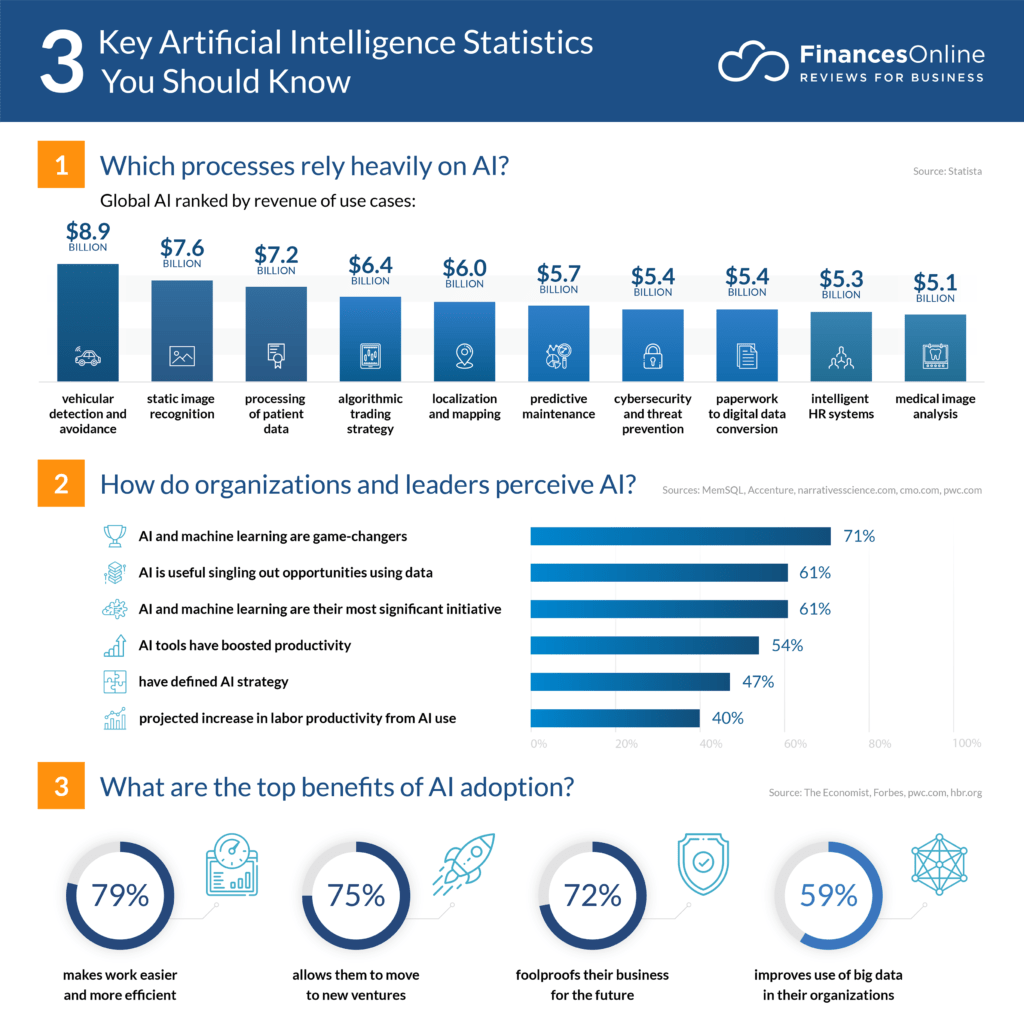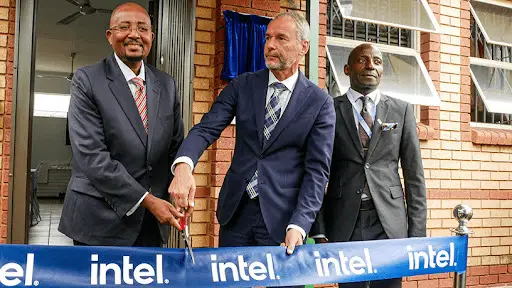Artificial intelligence may come to mind as some enigmatic, far-off idea from the Fourth Industrial Revolution that is connected to sequences from “out there” sci-fi films like Star Wars and Terminator.
But AI is already here and being employed in a wide range of technological advancements that facilitate and improve the efficiency of our daily tasks.
- According to the African Development Bank’s (AfDB) 2021 report, 92 per cent of Africa’s investment in tech is won by just four countries: Nigeria, Egypt, Kenya, and South Africa.
- Indian-based AI firm CyborgIntell opens an office in South Africa.
- Intel taps North West TVET college to spark AI appetite.
International Tech companies and investors continue to pour money into Southern Africa’s Tech space, but that influx of cash is not being distributed evenly. The vast majority of the investment is scooped up by just one country, South Africa.
Read: Liquid, Eutelsat partner to launch satellite ground station in South Africa
Artificial intelligence is currently being used and employed in increasing measures across all spheres of business and industry. It is the technology behind navigation and ridesharing apps you use when ordering a ride and the facial recognition functionality of digital banking.

South Africa spends heavily on AI-powered financial services. According to the South Africa Artificial Intelligence in Banking and Finance Industry Databook Series (2016-2025), AI spending has increased by 106.4 per cent during 2018 to reach US$ 69.0 million (R1.035 billion). Over the forecast period (2019-2025), spending on AI in South Africa is expected to record a CAGR of 35.4 per cent, increasing from US$ 119.2 million (R1.788 billion) in 2019 to reach US$ 994.0 million (R14.910 billion) by 2025.
This business intelligence report from TechInsight360 analyzes market opportunities and risks in the artificial intelligence (AI) industry and its applications in over 140+ areas across 18 industries in South Africa.
Read: Amazon Web Services and Google to extend their footprint in South Africa
As a sign of the growing momentum around AI in South Africa, Indian-based artificial intelligence (AI) start-up, CyborgIntell, has opened an office in South Africa.
CyborgIntell Africa says it will work closely with financial institutions and other enterprises to help them rapidly develop, deploy and operationalize AI applications at scale.
A statement says the CyborgIntell platform addresses the key challenges companies face in the data science/machine learning lifecycle – from data selection and modelling, and operationalizing AI, to managing risk and governance.
“AI is a powerful and transformative technology, yet many companies across the world find it difficult to unlock its full potential. More than a third (36%) of organizations take more than 90 days to deploy data science machine learning (ML) projects, while the failure rate of such initiatives is estimated to be 85% across industries,” said McLachlan, CyborgIntell managing director.
“CyborgIntell has created a platform that enables enterprises to accelerate the adoption of AI and ML by operationalizing sophisticated ML models for effective data-driven decision-making, within two to four weeks, with transparency, explainability, governance, and risk management. Our vision is to help African organizations extract the best returns from their data science, AI, and ML investments by automating the data science and machine learning lifecycle.”
CyborgIntell was founded in 2018 in Bengaluru, India, by Suman Singh, Amit Kumar, and Mohammed Nawas.
According to the company, CyborgIntell reduces the time required to develop accurate, production-ready models to just a few hours without writing any code. It points out the scalable AI platform can address a variety of use cases for every enterprise in various industries.
Furthermore, it enables organizations to interpret, explain and trust ML models. It understands, mitigates bias, and continuously improves performance, ensuring AI adoption, CyborgIntell adds.
“We are excited to be investing in Africa with a view to democratizing AI and helping organizations unleash their full power,” McLachlan said.
Meanwhile, South Africa is also establishing an Artificial Intelligence (AI) Institute to amplify teaching robotics and coding in public schools.
Communications and digital technologies minister Khumbudzo Ntshavheni revealed the plan saying the AI Institute is being set up in partnership with the University of Johannesburg and Tshwane University of Technology, which are co-founder institutions, together with her department.
The minister addressed the G20 Digital Economy Ministers Meeting in Indonesia, emphasizing the need to develop ICT skills. She explained that, like most countries on the continent, SA has a youthful population, which is increasingly embracing the digital economy, as witnessed by the creativity and innovative nature of young people in the ICT space.
As such, she said, the country needs to invest significantly in modern training and skills development.
“At present, learners in over a thousand schools are designing and producing robots, both for gaming and to complete tasks the learners find tedious for human completion. Next year, learners in these and additional schools that will join this category will compete in a National Robotics Development Challenge.
“The teaching of robotics and coding in our public schools will further be enhanced by our soon-to-be-launched Artificial Intelligence Institute that is being established in partnership with institutions of higher learning.”
The global chipmaker Intel also launched its AI for Future Workforce program at Orbit TVET College, Brits Campus.

North West technical and vocational education and training (TVET) institution Orbit TVET College is the first on African soil to roll out Intel’s artificial intelligence (AI) training programme.
The launch event, which was a collaborative effort between Intel, Orbit, and the Department of Higher Education and Training (DHET), also saw the opening of a new AI laboratory at the institution.
Speaking at the launch event, Maurits Tichelman, Intel VP of sales and marketing and GM for EMEA territories, stated that Intel is honoured to contribute to developing AI skills at Orbit TVET College.
“The launch of this programme is the first one in South Africa and also the first one on the continent, and we look forward to extending the AI for Future Workforce programme to all other colleges.
“Starting here [at Orbit] presents great potential to go to all colleges in South Africa and spread across the continent,” he said.
Africans are youthful, aspirational, and intelligent. The continent’s emerging tech scene will thrive if given the appropriate resources to enter the field, and the appropriate regulations are put in place.











